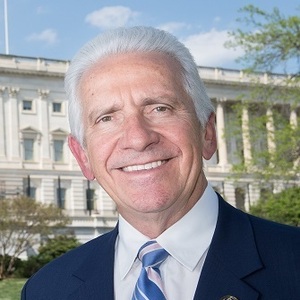Bill aims to extend biodiesel, renewable diesel, RNG tax credits

May 19, 2021
BY Erin Krueger
Reps. Jim Costa, D-Calif., and David Valadao, R-Calif., on May 17 introduced the Biodiesel, Renewable Diesel and Alternative Fuels Extension Act of 2021, which would extend and phase down the existing tax credits for these fuels.
The bill, H.R. 3272, aims to extend the existing 40A tax credit for biodiesel and renewable diesel through the end of 2025. The credit is currently in place through the end of 2022. The credit would be maintained at its existing $1 per gallon value through the end of 2022, and phase down to 75 cents per gallon in 2023 and 50 cents per gallon in 2024 and 2025.
The legislation also extends two existing tax credits for alternative fuels through the end of 2025. The credits are currently in place through the end of this year.
Advertisement
Advertisement
For the alternative fuel credit, which applies to a variety of fuels, including compressed or liquefied biomass and certain liquid fuels derived from biomass, excluding ethanol, methanol, biodiesel, or fuels derived from the production of pulp or paper, the tax credit would be maintained at its current level of 50 cents per gasoline equivalent gallon through 2022. The credit would then phase down to 37.5 cents per gasoline equivalent gallon in 2023 and 25 cents per gasoline equivalent gallon in 2024 and following years.
The alternative fuel mixture credit would also be extended at its current level of 50 cents per gasoline equivalent gallon of fuel used to produce the fuel mixture through 2022, and phased down to 37.5 per gallon in 2023 and 25 cents per gallon in 2024 and later years.
"I am pleased to introduce legislation to extend tax credits for the production of biodiesel and alternative fuel mixtures,” Valadao said. “Renewable fuels are an important component of our transportation fuel supply, achieving immediate reductions in transportation sector greenhouse gas emissions. While we propose to phase out the credits over time, they are still critically needed today to make the production of these renewable fuels economically viable and to encourage continued innovation. Conventional refineries in my district are producing low-carbon renewable diesel from biomass and blending biodiesel in their diesel fuel. These companies provide people in my district with good jobs, and they play a critical role in ensuring that our families, truckers, farmers, and military bases have the supply of CA-compliant fuels that we need to power our economy."
Advertisement
Advertisement
“Renewable fuels play an important role in our efforts to reduce greenhouse gas emissions and mitigate the impacts of climate change,” Costa said. “By extending these tax incentives, we can provide critical economic relief for producers, fuel retailers, truckers and consumers as they plan and adjust to future regulations. As we move toward a greener tomorrow, we must use all the innovative solutions at our disposal.”
A full copy of the bill can be downloaded from Costa’s website.
Related Stories
The USDA has announced it will delay opening the first quarterly grant application window for FY 2026 REAP funding. The agency cited both an application backlog and the need to disincentivize solar projects as reasons for the delay.
Neste and DHL Express have strengthened their collaboration with the supply of 7,400 tons (9.5 million liters) of neat, i.e. unblended, Neste MY Sustainable Aviation Fuel to DHL Express at Singapore Changi Airport starting July 2025.
CoBank’s latest quarterly research report, released July 10, highlights current uncertainty around the implementation of three biofuel policies, RFS RVOs, small refinery exemptions (SREs) and the 45Z clean fuels production tax credit.
The U.S. Energy Information Administration maintained its forecast for 2025 and 2026 biodiesel, renewable diesel and sustainable aviation fuel (SAF) production in its latest Short-Term Energy Outlook, released July 8.
XCF Global Inc. on July 10 shared its strategic plan to invest close to $1 billion in developing a network of SAF production facilities, expanding its U.S. footprint, and advancing its international growth strategy.
Upcoming Events










